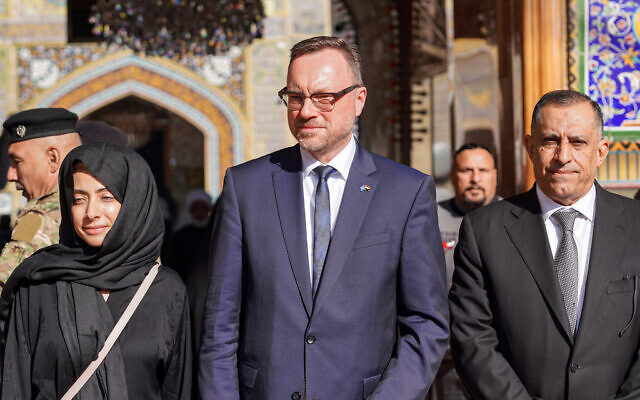
United Nations – The United Nations will soon launch a central archive containing millions of digitized documents that it says provide evidence of crimes committed by the Islamic State group in Iraq, an official said Wednesday.
UNITAD, the UN body set up to investigate IS crimes in the country, began its fieldwork five years ago in an effort to bring the jihadists to justice.
“For us, it is absolutely clear that only if we work side by side with the Iraqi authorities, especially with our counterparts in the Iraqi judiciary, UNITAD can be successful,” said UN chief investigator Christian Richter. Said.
The former German prosecutor is looking into a range of IS atrocities, from murder, torture and gang rape to enslavement and genocide.
He says success will mean that perpetrators of “heinous international crimes” will be held accountable “through evidence-based trials and before competent courts”.
He added that one of the essential components for success is having “acceptable and credible evidence”.

File:Christian Richter (centre), Special Adviser to the Secretary-General of the United Nations and Head of the United Nations Investigative Team to Promote Accountability for Crimes Committed by the Islamic State (IS) Group in Iraq and Elsewhere (UNITAD), Residence Visits Iraq’s Grand Ayatollah Ali Sistani in the central holy pilgrimage city of Najaf on December 19, 2022. (Qassem al-Kaabi / AFP)
“I can assure you there is no shortage of evidence of ISIL crimes in Iraq,” he said, using an alternative acronym for the IS group.
“ISIL was a massive bureaucracy that documented and maintained a state-like administrative system.”
Because of this, UNITAD launched a major project to digitize IS documents “to ensure that this evidence is admissible before any competent court, whether in Iraq or in other states.”
Eight million pages of documents so far in the possession of Iraqi authorities have been digitized and are already proving useful in the Iraqi judicial system, he said.
The next step would be to “establish a central repository that would be a unified repository of all digitized evidence,” Richter said.
Richer said, in agreement with Iraqi authorities, the archive would be launched “in the coming days” and would be located in Iraq’s Supreme Judicial Council.
The repository, he said, “could be a milestone in establishing a comprehensive e-justice system in Iraq that could be upheld as a leading example not only in the region, but globally.”
After their massive surge in 2014, IS jihadists briefly controlled a third of Iraqi territory.
In December 2017, Iraq claimed victory against IS, but it was not until March 2019 that the radical jihadist group collapsed, having lost its last stronghold in neighboring Syria.
